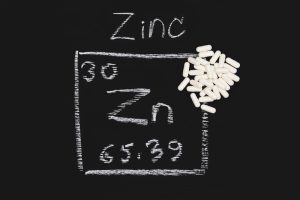 Could pyrrole disorders be holding back your health? Pyrroluria is a condition in which the the body produces excess of pyrroles. Pyrroles are normally produced in small numbers as a byproduct of hemoglobin synthesis and excreted in the urine. However, some people produce an abnormally large numbers of pyrroles. These pyrroles then bind to pyridoxine (B6) and zinc, causing them to be excreted from the body, with deficiency states arising as a result.
Could pyrrole disorders be holding back your health? Pyrroluria is a condition in which the the body produces excess of pyrroles. Pyrroles are normally produced in small numbers as a byproduct of hemoglobin synthesis and excreted in the urine. However, some people produce an abnormally large numbers of pyrroles. These pyrroles then bind to pyridoxine (B6) and zinc, causing them to be excreted from the body, with deficiency states arising as a result.
Pyrroluria creates wide range of symptoms – physical, mental and emotional – but is particularly associated with emotional and psychiatric issues eg autism, ADHD, behavioral issues, depression, anxiety, aggressive behavior, schizophrenia. Physical symptoms include poor digestion, poor appetite especially in the morning, low tolerance for protein, white flecks on the fingernails, tooth and gum problems, motion sickness, allergies and fatigue.
Integrative M.D. Dietrich Klinghardt believes that pyrroluria is a factor in over 80% of Lyme patients, over 75% of patients with heavy metal toxicity, and over 80% of people on the autism spectrum. It is particularly important to assess if lots of psych symptoms are present – anxiety, stress intolerance, mood lability and the like.
Testing for Pyrroluria
Testing for pyrrole disorders is done through urine testing and measurement of pyrroles in the urine. Blood testing for levels of magnesium, B6, manganese, copper, vitamin C, B5 and B3 can also be helpful. I tend to use Spectracell as it measures levels of nutrients inside the cells, not just in the serum.
For the urine test I use DHA Labs or Great Plains Lab. Kits are sent to ones home and the urine collection taken and shipped back to the lab.
Treating Pyrroluria
Given the breadth and severity of symptoms that pyrrole disorders can create, treatment is relatively simple and inexpensive. It centers around replenishing the minerals and vitamins that have been depleted. Zinc and B6 are the central nutrients to be replenished, and higher doses are often needed. B6 is often given as P5P which is its activated form.
- Zinc 25-75 mg
- P5P 50-300 mg
As mentioned, there are other nutrients that should be given to keep everything in balance:
- Vitamin C and pantothenic acid (B5)
- Magnesium (levels can be depleted with high-dose B6 supplementation)
- Vitamin B3
- Manganese (levels can be depleted with high-dose zinc supplementation)
I have become more and more aware of the significance of pyrrole disorders of late and will definitely be testing the majority of my patients from now on. I feel it could be a missing piece for many, and given the straightforward nature of testing, and treatment, it will be accessible to most who need it. If you are a current patient and this information resonates with you, please call the office for a kit and let’s get this checked out.
